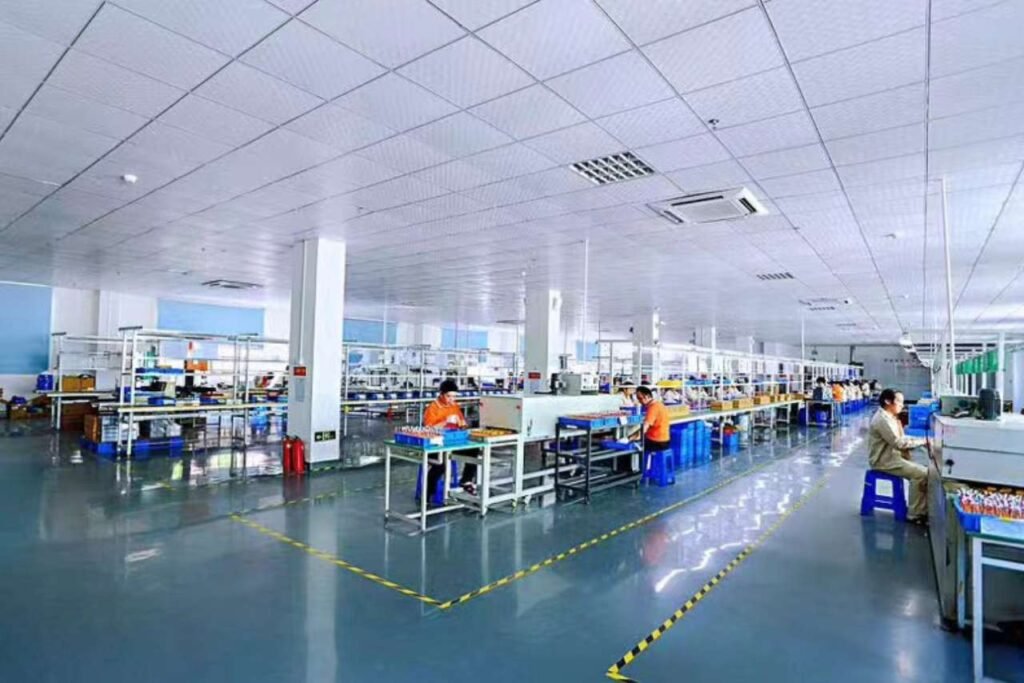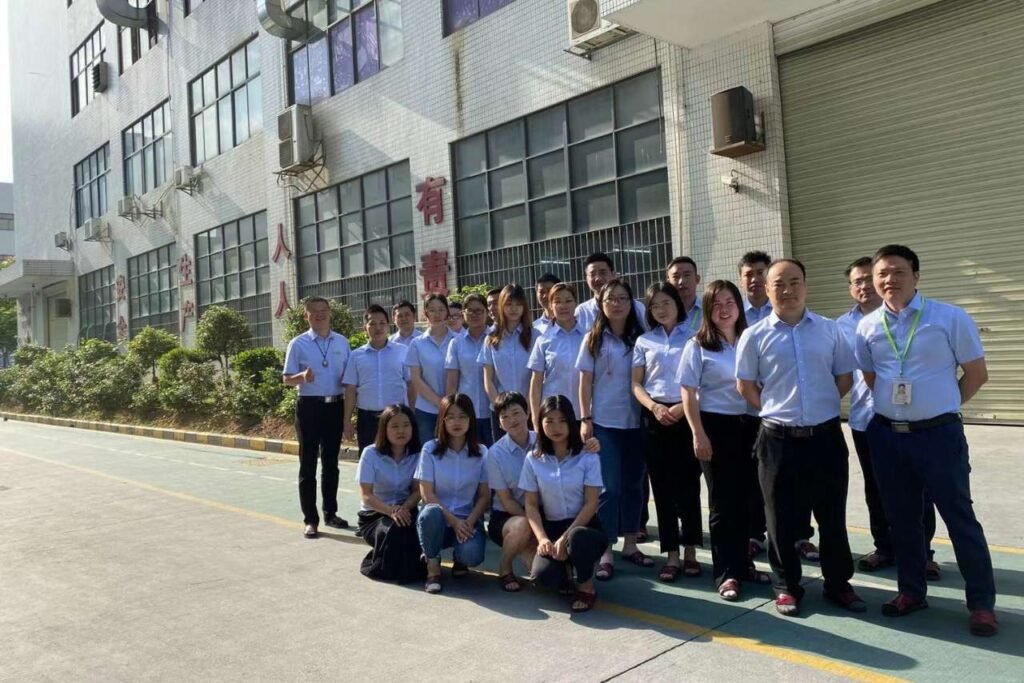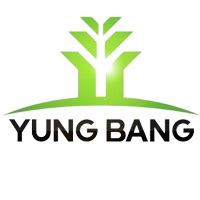As the world transitions toward more sustainable, portable, and efficient energy solutions, lithium-ion polymer (LiPo) batteries are gaining dominance. These batteries are widely used in various applications, from smartphones and laptops to electric vehicles (EVs) and drones. Finding the right manufacturers of lithium-ion polymer batteries is critical for industries that rely on high-performance, lightweight, and durable energy sources. In this detailed guide, we will explore the leading manufacturers, the technology behind LiPo batteries, and what makes these manufacturers stand out in a highly competitive market.

What Are Lithium Ion Polymer Batteries?
Before diving into the list of top manufacturers, it’s essential to understand what lithium-ion polymer batteries are and why they have become so prevalent. Unlike traditional lithium-ion batteries, which use a liquid electrolyte, LiPo batteries use a solid or gel-like polymer electrolyte. This key difference allows LiPo batteries to be more flexible in design, often making them lighter and more compact.
Key Features of Lithium Ion Polymer Batteries
- Flexible Form Factor: The polymer electrolyte enables manufacturers to shape the battery into various forms, making LiPo batteries ideal for slim and compact devices like smartphones, tablets, and wearables.
- High Energy Density: LiPo batteries offer relatively high energy density, though typically not as high as traditional lithium-ion batteries. However, the trade-off often results in a lighter and more adaptable design.
- Safety: LiPo batteries are generally safer than traditional lithium-ion batteries due to their solid or semi-solid electrolyte, which reduces the risk of leaks. However, they still require careful handling to avoid issues like swelling or overheating.
Top Manufacturers of Lithium Ion Polymer Batteries
1. Guangdong Yungbang New Energy Co., Ltd.
Guangdong Yungbang New Energy Co., Ltd. is one of China’s leading manufacturers of lithium-ion polymer batteries. The company specializes in producing both LiPo batteries and 18650 battery packs, offering customized battery solutions for various industries, including drones, electric vehicles, and consumer electronics.
- Key Advantages: Yungbang stands out for its ability to deliver custom battery designs tailored to the specific needs of its clients. As a source factory, the company provides high-quality products with competitive pricing and excellent customer service. Their focus on safety, reliability, and innovation makes them a trusted partner for businesses worldwide.
- Customization: Whether you need a unique battery size, shape, or voltage, Yungbang offers a wide range of customization options to meet the exact specifications of your project. This capacity to provide tailored solutions is one of the company’s biggest strengths.

2. Panasonic Corporation
Panasonic is a global leader in the battery industry, with a long history of producing high-quality lithium-ion and lithium polymer batteries. The company supplies batteries to various sectors, including consumer electronics, automotive, and energy storage.
- Key Markets: Panasonic is a key supplier for electric vehicle manufacturers, including Tesla, and provides batteries for laptops, smartphones, and other portable devices.
- Innovation: The company continually invests in research and development to improve the energy density, safety, and longevity of its batteries, making Panasonic a top choice for companies seeking cutting-edge battery technology.
3. LG Energy Solution
Formerly part of LG Chem, LG Energy Solution is another major player in the lithium-ion polymer battery market. LG’s batteries are widely used in electric vehicles, smartphones, and energy storage systems.
- Key Strengths: LG is known for its high energy density and long-lasting batteries, which are essential for electric vehicles and high-performance consumer electronics. Their batteries are also known for their safety features, making them a reliable choice for industries that require robust energy solutions.
- Global Reach: LG Energy Solution supplies batteries to major automakers, including General Motors and Hyundai, and has a strong presence in the global battery market.
4. Samsung SDI
Samsung SDI is a subsidiary of the Samsung Group and a leading manufacturer of lithium-ion and lithium polymer batteries. Samsung SDI’s batteries are widely used in consumer electronics, electric vehicles, and energy storage systems.
- Focus on Safety: Samsung SDI is renowned for its focus on safety, ensuring that its batteries meet the highest standards of reliability and performance. The company has also invested heavily in developing solid-state battery technology, which could revolutionize the battery industry in the coming years.
- EV Market: Samsung SDI is a major supplier to electric vehicle manufacturers, contributing to the global shift toward cleaner, more sustainable transportation.
5. BYD (Build Your Dreams)
BYD is a Chinese company that has made significant strides in both the electric vehicle and battery manufacturing industries. BYD produces lithium-ion polymer batteries for its own line of electric vehicles, as well as for other automakers and various industrial applications.
- Vertical Integration: BYD is unique in that it manufactures both electric vehicles and the batteries that power them, giving the company greater control over the quality and performance of its products.
- Sustainability: BYD is also a leader in the renewable energy sector, producing batteries for energy storage systems that help integrate solar and wind power into the grid.
6. Contemporary Amperex Technology Co. Ltd. (CATL)
CATL is one of the largest producers of lithium-ion batteries, including lithium polymer batteries. The company supplies batteries to many of the world’s leading automakers, including BMW, Volkswagen, and Tesla.
- High Energy Density: CATL is known for producing batteries with high energy density, which are essential for electric vehicles that require long driving ranges and fast charging capabilities.
- Innovation and Scale: CATL continues to invest in research and development, focusing on improving battery performance and sustainability. The company’s large-scale production capabilities make it one of the most cost-effective options for businesses seeking high-quality batteries at competitive prices.
7. Amperex Technology Limited (ATL)
ATL is a leading manufacturer of lithium polymer batteries, particularly for consumer electronics. ATL supplies batteries to some of the biggest names in the tech industry, including Apple.
- Consumer Electronics: ATL specializes in producing slim, lightweight batteries for devices like smartphones, tablets, and wearables. Their focus on high energy density and compact design makes them a top choice for manufacturers of portable electronics.
- Quality and Safety: ATL places a strong emphasis on quality control and safety, ensuring that their batteries meet the rigorous demands of the consumer electronics market.
8. Tenergy Corporation
Tenergy is a U.S.-based company that produces a wide range of rechargeable batteries, including lithium-ion polymer batteries. Their products are used in various applications, from consumer electronics to medical devices and industrial equipment.
- Affordability and Performance: Tenergy is known for offering affordable, high-performance battery solutions. Their ability to provide custom battery packs makes them a versatile option for businesses that need tailored energy solutions.
- Wide Application: Tenergy’s batteries are used in a broad range of industries, including healthcare, robotics, and energy storage, making them a reliable partner for companies with diverse energy needs.
9. EEMB Battery
EEMB Battery is a Chinese manufacturer specializing in lithium-ion polymer batteries. EEMB produces batteries for consumer electronics, industrial applications, and electric vehicles.
- Flexible Production: EEMB is known for its ability to produce both standard and custom battery designs, making them a good choice for companies that need flexible production capabilities.
- Global Reach: EEMB exports its batteries to customers worldwide, offering competitive pricing and a wide range of battery products to suit various applications.
10. A123 Systems
A123 Systems is a U.S.-based manufacturer of lithium-ion batteries, with a focus on high-performance applications such as electric vehicles, grid storage, and medical devices.
- Lithium Iron Phosphate (LiFePO4) Technology: A123 Systems is known for using LiFePO4 chemistry in its batteries, which offers enhanced safety, longer cycle life, and better thermal stability compared to traditional lithium-ion polymer batteries.
- High-Performance Applications: A123 Systems specializes in producing batteries for demanding applications that require high power output and long-term durability.
How to Choose the Right Manufacturer of Lithium Ion Polymer Batteries
Selecting the right lithium-ion polymer battery manufacturer involves considering several factors, including quality, performance, safety, and cost. Here are some key criteria to keep in mind:
Quality and Reliability
The quality of a battery can significantly impact the performance and longevity of your product. Look for manufacturers with a proven track record of producing high-quality batteries that meet international safety standards.
At Guangdong Yungbang New Energy Co., Ltd., we prioritize quality control and use only the best materials to ensure the reliability and safety of our batteries. Our products undergo rigorous testing to meet the specific needs of our clients.
Customization Capabilities
If your application requires a unique battery design, working with a manufacturer that offers customization options is essential. Custom batteries allow you to optimize the size, shape, and performance of the battery to match the specific requirements of your product.
At Guangdong Yungbang New Energy, we offer customized battery solutions to meet the unique needs of each client. Whether you need a specific voltage, size, or shape, we can deliver a battery that fits your exact specifications.
Cost and Availability
While cost should not be the only factor in choosing a battery manufacturer, it is an important consideration. Look for manufacturers that offer competitive pricing without compromising on quality. Additionally, ensure that the manufacturer has a reliable supply chain and can meet your production timelines.
Guangdong Yungbang New Energy Co., Ltd. offers competitive pricing and maintains a robust supply chain to ensure that our clients receive their batteries on time, every time.
Conclusion: Why Quality Manufacturers Matter
The global market for lithium-ion polymer batteries continues to grow, driven by the increasing demand for portable, efficient, and sustainable energy solutions. Choosing the right manufacturer is critical to ensuring the success of your project, whether you’re developing consumer electronics, electric vehicles, or industrial equipment.
Guangdong Yungbang New Energy Co., Ltd. stands out as a leading manufacturer of lithium-ion polymer batteries and 18650 battery packs, providing high-quality, customized battery solutions for a wide range of industries. With our commitment to quality, innovation, and customer service, we are the ideal partner for businesses seeking reliable energy solutions.
FAQ
1. What is the difference between lithium-ion and lithium polymer batteries?
While both lithium-ion and lithium polymer batteries use lithium-ion technology, the key difference lies in the electrolyte. Li-ion batteries use a liquid electrolyte, while LiPo batteries use a solid or gel-like polymer electrolyte. This makes LiPo batteries more flexible in design but generally with a lower energy density.
2. Can lithium polymer batteries be customized for specific applications?
Yes, lithium polymer batteries can be customized in terms of size, shape, and voltage to meet the specific requirements of different applications. Guangdong Yungbang New Energy Co., Ltd. specializes in providing customized battery solutions for various industries.
3. What industries use lithium-ion polymer batteries?
LiPo batteries are widely used in industries like consumer electronics (smartphones, tablets, wearables), electric vehicles, drones, medical devices, and energy storage systems.
4. How long do lithium-ion polymer batteries last?
The lifespan of a lithium polymer battery depends on usage and environmental factors, but they typically last between 300-500 charge cycles before their capacity significantly degrades.
5. What safety precautions should be taken when using lithium polymer batteries?
To ensure safety, lithium polymer batteries should not be overcharged or exposed to high temperatures. It’s also essential to use the correct charger and store the batteries in a cool, dry place.

